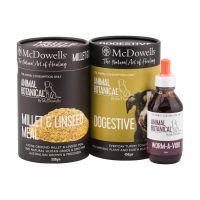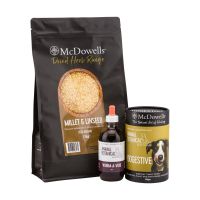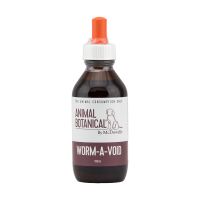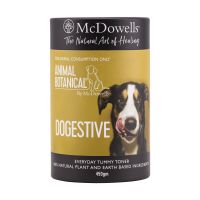Canine internal worms – apart from tapeworms - are rarely seen. The best way to find out if your dog has worms is to have your vet perform a feacal ex am, rather than to just keep worming.
There's four types of worms in dogs; hookworms, roundworms, whipworms and tapeworms.
How dogs get worms:
From a bitch to a pup
Eating infected meat
Eating a dog's infected poo
Skin contact
Chemical wormers are perhaps more powerful than what you would want and work only because they kill worms quicker than killing dogs. They leave dead worms in the blood which can create problems, damage the immunity and the animal is more prone to new infestation.
Assisting your dog to manage the worm loads is a much more realistic target and can be done using our worming program.
McDowells recommendations
My recommended treatment Worm-A-Void, is based on a concentrated extract of aloes, Cayenne, Garlic, Gentian, Rue, Tansy, Thuja, Thyme, Wormwood, Dr Bach Flowers; Crab Apple.
The herb Wormwood (and many others) was used for hundreds of years to assist in managing worm loads in people and animals alike. These herbal wormers are safe for the host, have no side effects and discourage worms by making the dog's system healthier and discouraging worm reproduction.
This mixture of traditional anti-parasitic herbs works by toning up the wall of the gut while at the same time expelling worms. Regular use leaves the gut healthier than before and more able to manage a natural and harmless worm load.





